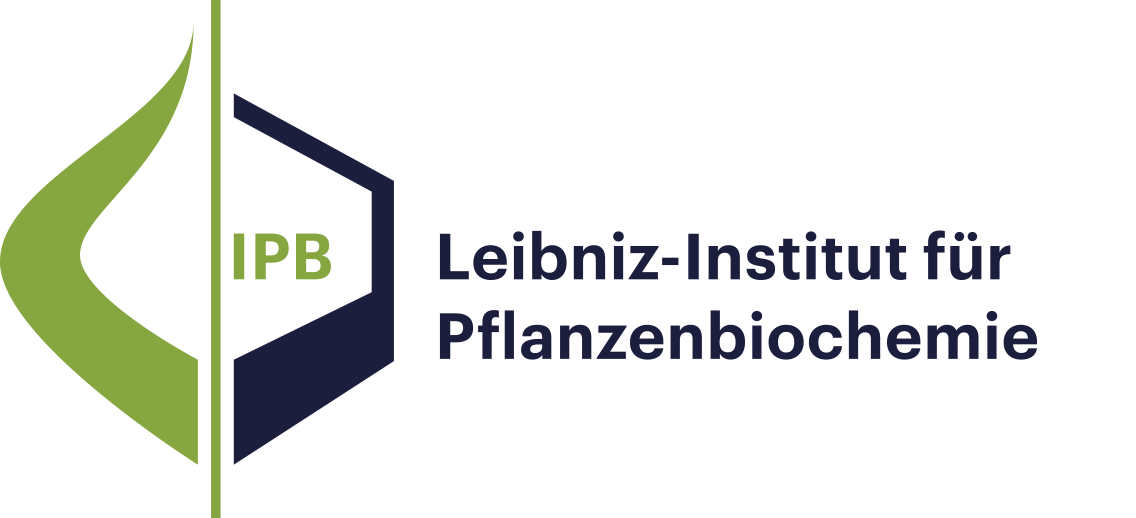- Ergebnisse als:
- Druckansicht
- Endnote (RIS)
- BibTeX
- Tabelle: CSV | HTML
Publikation
Publikation
Publikation
Publikation
Publikation
Publikation
Leitbild und Forschungsprofil
Molekulare Signalverarbeitung
Natur- und Wirkstoffchemie
Biochemie pflanzlicher Interaktionen
Stoffwechsel- und Zellbiologie
Unabhängige Nachwuchsgruppen
Program Center MetaCom
Publikationen
Gute Wissenschaftliche Praxis
Forschungsförderung
Netzwerke und Verbundprojekte
Symposien und Kolloquien
Alumni-Forschungsgruppen
Publikationen
Publikation
Recognition of pathogen attack or elicitation with pathogen-associated molecular patterns (PAMPs) leads to defense signaling that includes activation of the three mitogen-activated protein kinases (MPKs), MPK3, MPK4 and MPK6 in Arabidopsis. Recently, we demonstrated the activation of a fourth MPK, MPK11, after treatment with flg22, a 22 amino acid PAMP derived from bacterial flagellin. Here, we extended the study by examining elicitation with two other PAMPs, elf18 (derived from bacterial elongation factor EF-Tu) and ch8 (N-acetylchitooctaose derived from fungal chitin). Both PAMPs led to rapid MPK11 transcript accumulation and increased MPK11 kinase activity, suggesting that multiple PAMPs (or stresses) can activate MPK11. However, probably due to functional redundancies, bacteria-induced phytoalexin accumulation does not absolutely require MPK11.
Publikation
Mitogen-activated protein kinases (MAPK) mediate cellular signal transduction during stress responses, as well as diverse growth and developmental processes in eukaryotes. Pathogen infection or treatments with conserved pathogen-associated molecular patterns (PAMPs) such as the bacterial flagellin-derived flg22 peptide are known to activate three Arabidopsis thaliana MAPK: MPK3, MPK4, and MPK6. Several stresses, including flg22 treatment, are known to increase MPK11 expression but activation of MPK11 has not been shown. Here, we show that MPK11 activity can, indeed, be increased through flg22 elicitation. A small-scale microarray for profiling defense-related genes revealed that cinnamyl alcohol dehyrogenase 5 requires MPK11 for full flg22-induced expression. An mpk11 mutant showed increased flg22-mediated growth inhibition but no altered susceptibility to Pseudomonas syringae, Botrytis cinerea, or Alternaria brassicicola. In mpk3, mpk6, or mpk4 backgrounds, MPK11 is required for embryo or seed development or general viability. Although this developmental deficiency in double mutants and the lack of or only subtle mpk11 phenotypes suggest functional MAPK redundancies, comparison with the paralogous MPK4 reveals distinct functions. Taken together, future investigations of MAPK roles in stress signaling should include MPK11 as a fourth PAMP-activated MAPK.
Publikation
Recognition of pathogen attack or elicitation with pathogen-associated molecular patterns (PAMPs) leads to defense signaling that includes activation of the three mitogen-activated protein kinases (MPKs), MPK3, MPK4 and MPK6 in Arabidopsis. Recently, we demonstrated the activation of a fourth MPK, MPK11, after treatment with flg22, a 22 amino acid PAMP derived from bacterial flagellin. Here, we extended the study by examining elicitation with two other PAMPs, elf18 (derived from bacterial elongation factor EF-Tu) and ch8 (N-acetylchitooctaose derived from fungal chitin). Both PAMPs led to rapid MPK11 transcript accumulation and increased MPK11 kinase activity, suggesting that multiple PAMPs (or stresses) can activate MPK11. However, probably due to functional redundancies, bacteria-induced phytoalexin accumulation does not absolutely require MPK11.
Publikation
Mitogen-activated protein kinases (MAPK) mediate cellular signal transduction during stress responses, as well as diverse growth and developmental processes in eukaryotes. Pathogen infection or treatments with conserved pathogen-associated molecular patterns (PAMPs) such as the bacterial flagellin-derived flg22 peptide are known to activate three Arabidopsis thaliana MAPK: MPK3, MPK4, and MPK6. Several stresses, including flg22 treatment, are known to increase MPK11 expression but activation of MPK11 has not been shown. Here, we show that MPK11 activity can, indeed, be increased through flg22 elicitation. A small-scale microarray for profiling defense-related genes revealed that cinnamyl alcohol dehyrogenase 5 requires MPK11 for full flg22-induced expression. An mpk11 mutant showed increased flg22-mediated growth inhibition but no altered susceptibility to Pseudomonas syringae, Botrytis cinerea, or Alternaria brassicicola. In mpk3, mpk6, or mpk4 backgrounds, MPK11 is required for embryo or seed development or general viability. Although this developmental deficiency in double mutants and the lack of or only subtle mpk11 phenotypes suggest functional MAPK redundancies, comparison with the paralogous MPK4 reveals distinct functions. Taken together, future investigations of MAPK roles in stress signaling should include MPK11 as a fourth PAMP-activated MAPK.
Publikation
Recognition of pathogen attack or elicitation with pathogen-associated molecular patterns (PAMPs) leads to defense signaling that includes activation of the three mitogen-activated protein kinases (MPKs), MPK3, MPK4 and MPK6 in Arabidopsis. Recently, we demonstrated the activation of a fourth MPK, MPK11, after treatment with flg22, a 22 amino acid PAMP derived from bacterial flagellin. Here, we extended the study by examining elicitation with two other PAMPs, elf18 (derived from bacterial elongation factor EF-Tu) and ch8 (N-acetylchitooctaose derived from fungal chitin). Both PAMPs led to rapid MPK11 transcript accumulation and increased MPK11 kinase activity, suggesting that multiple PAMPs (or stresses) can activate MPK11. However, probably due to functional redundancies, bacteria-induced phytoalexin accumulation does not absolutely require MPK11.
Publikation
Mitogen-activated protein kinases (MAPK) mediate cellular signal transduction during stress responses, as well as diverse growth and developmental processes in eukaryotes. Pathogen infection or treatments with conserved pathogen-associated molecular patterns (PAMPs) such as the bacterial flagellin-derived flg22 peptide are known to activate three Arabidopsis thaliana MAPK: MPK3, MPK4, and MPK6. Several stresses, including flg22 treatment, are known to increase MPK11 expression but activation of MPK11 has not been shown. Here, we show that MPK11 activity can, indeed, be increased through flg22 elicitation. A small-scale microarray for profiling defense-related genes revealed that cinnamyl alcohol dehyrogenase 5 requires MPK11 for full flg22-induced expression. An mpk11 mutant showed increased flg22-mediated growth inhibition but no altered susceptibility to Pseudomonas syringae, Botrytis cinerea, or Alternaria brassicicola. In mpk3, mpk6, or mpk4 backgrounds, MPK11 is required for embryo or seed development or general viability. Although this developmental deficiency in double mutants and the lack of or only subtle mpk11 phenotypes suggest functional MAPK redundancies, comparison with the paralogous MPK4 reveals distinct functions. Taken together, future investigations of MAPK roles in stress signaling should include MPK11 as a fourth PAMP-activated MAPK.

